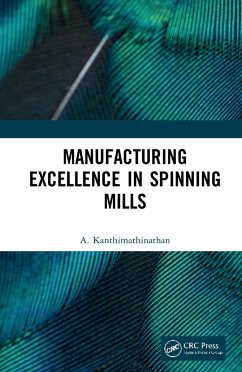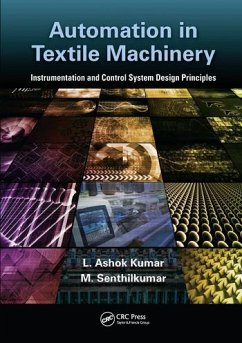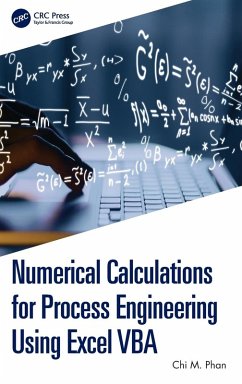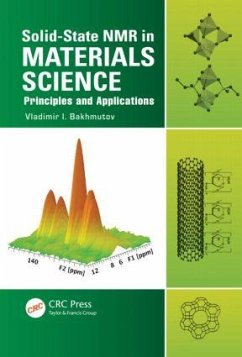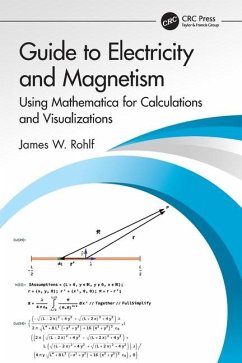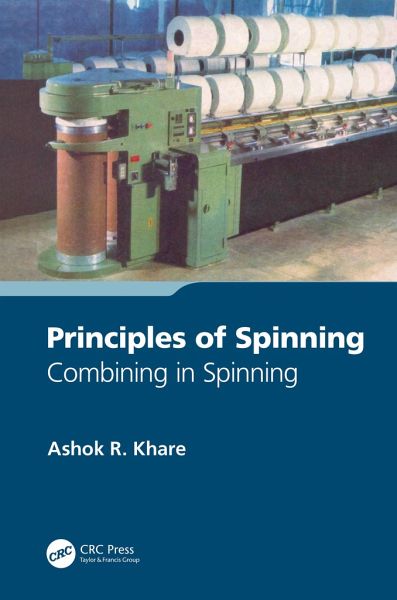
Principles of Spinning
Combing in Spinning
Versandkostenfrei!
Versandfertig in 6-10 Tagen
138,99 €
inkl. MwSt.
Weitere Ausgaben:

PAYBACK Punkte
69 °P sammeln!
Principally focussed on the combing process, the initial chapters of this book explain the basic functioning of the conventional comber, which is not very different from modern combing. Various associated motions with reference to certain timings along with importance are illustrated in detail. Characteristics that set the modern comber apart are also discussed including speed and control of features such as vibrations and fatigue. The role of modern electronics in mechanism control, including related calculations and solved examples, is described.Features:Exclusive title focussing on various ...
Principally focussed on the combing process, the initial chapters of this book explain the basic functioning of the conventional comber, which is not very different from modern combing. Various associated motions with reference to certain timings along with importance are illustrated in detail. Characteristics that set the modern comber apart are also discussed including speed and control of features such as vibrations and fatigue. The role of modern electronics in mechanism control, including related calculations and solved examples, is described.
Features:
Exclusive title focussing on various elements of combing in spinning.
Includes detailed functioning of conventional and modern combers.
Explains various motions in combing pertaining to different timings.
Discusses the role of modern electronics in controlling the mechanisms and offering online controls.
Features solved examples at the end to tackle problems at the shop-floor level.
This book is aimed at senior undergraduate/graduate students, textile process engineers and related manufacturing technologists, quality assurance professionals in textile engineering, staple fibre processing, spinning of staple fibres, textile marketing/design, textile technology, yarn manufacturing, spinning machines and design of yarns.
Features:
Exclusive title focussing on various elements of combing in spinning.
Includes detailed functioning of conventional and modern combers.
Explains various motions in combing pertaining to different timings.
Discusses the role of modern electronics in controlling the mechanisms and offering online controls.
Features solved examples at the end to tackle problems at the shop-floor level.
This book is aimed at senior undergraduate/graduate students, textile process engineers and related manufacturing technologists, quality assurance professionals in textile engineering, staple fibre processing, spinning of staple fibres, textile marketing/design, textile technology, yarn manufacturing, spinning machines and design of yarns.




